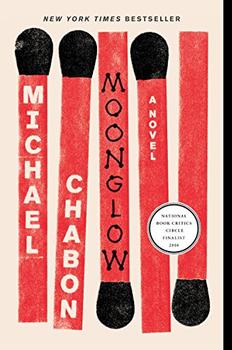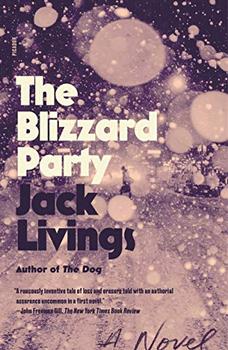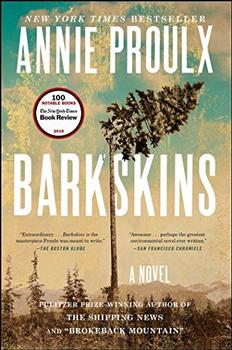Summary | Excerpt | Reviews | Beyond the book | Read-Alikes | Genres & Themes | Author Bio

Michael Chabon's latest novel is somewhat of a throwback to his Pulitzer Prize winning book, The Amazing Adventures of Kavalier & Clay, which takes the form of a pseudo-memoir, relying heavily on beefing up historical events by including fictional scenes and conversations. In Moonglow the story is very personal, basing the protagonist on Chabon's own grandfather, and placing himself and several other members of his family squarely in the novel as part of its cast of characters. The essence of the story comes from the ten days prior to his grandfather's death, when he came to live with Chabon's mother (his stepdaughter), and used that time to tell Chabon stories of his past.
One of the things that fascinated me with Kavilier & Clay is also an issue of consequence in this book – how much research, in so many areas, must have gone into them. In Moonglow some of the subjects include the hunt for Nazi scientists to boost America's technological warfare efforts; rocket science; NASA's space program; and at least two types of engineering. Also researched are such varied things as the best way to kill a boa constrictor; mental illness (both as part of what we now call PTSD, and as a result of a hormonal imbalance); and Jews hidden during WW2 by the Church, in this case in a convent. (See Beyond the Book).
If this sounds like a story that's all over the place, I can assure you that couldn't be further from the truth. Yes, Chabon does have quite a bit of ground to cover – but remember, he's practically telling his grandfather's whole life story. How he achieves this with such clarity and precision is what makes it so enjoyable. To be more specific, he takes a snippet from his grandfather's account in each chapter, and then segues into a fictionalized retelling of that event. In this way, Chabon blurs the lines between reality and imagination, making the inventions all the more real and the truths all the more alive; it is much like a docu-drama, where we get a dramatization of historical events.
Putting yourself and some of your real family members into a novel seems like a very brave thing to do – and not only because they might not like their portrayals. It seems to me that although "write what you know" may seem like a good rule of thumb for writers, sometimes writers can get too close to their characters which can lead to overly muddled details, and sliding off into tangents because there's so much stuff they are invested in and want to include. Chabon, however, avoids this pitfall with both grace and humor; instead of getting lost in the specifics, he allows himself to hint at certain things, and thereby keep his already long story from becoming overly tedious (although to be fully honest, there were some parts I think could have been edited out). Moonglow's characters feel so loveable in all of their imperfections, which in turn, makes this story feel human and authentic.
Chabon says at the beginning of the novel that he wrote it as a type of rebellion against secrets that his family has always had, which he believes never did them any good. This is why I was so impressed at how cleverly he introduced his climax twist, the ultimate family secret with more potential for doing damage than healing. He just slips this piece of information in with a little "ah-ha" moment, which faintly colors everything you've read before, and leaves you with questions that compel you to read through to the end. I cannot say more about this, since I refuse to put spoilers in my reviews, but trust me when I say it will make you raise your eyebrows. It should therefore be no surprise that Moonglow is getting accolades and is included in some "Best of 2016," lists. I, too, believe it is a praiseworthy novel.
![]() This review
first ran in the January 18, 2017
issue of BookBrowse Recommends.
This review
first ran in the January 18, 2017
issue of BookBrowse Recommends.

If you liked Moonglow, try these:

by Jack Livings
Published 2022
A panoramic novel set in New York City during the catastrophic blizzard of February 1978.

by Annie Proulx
Published 2017
From Annie Proulx - the Pulitzer Prize- and National Book Award - winning author of The Shipping News and Brokeback Mountain, comes her masterwork: an epic, dazzling, violent, magnificently dramatic novel about the taking down of the world's forests.
Your guide toexceptional books
BookBrowse seeks out and recommends the best in contemporary fiction and nonfiction—books that not only engage and entertain but also deepen our understanding of ourselves and the world around us.